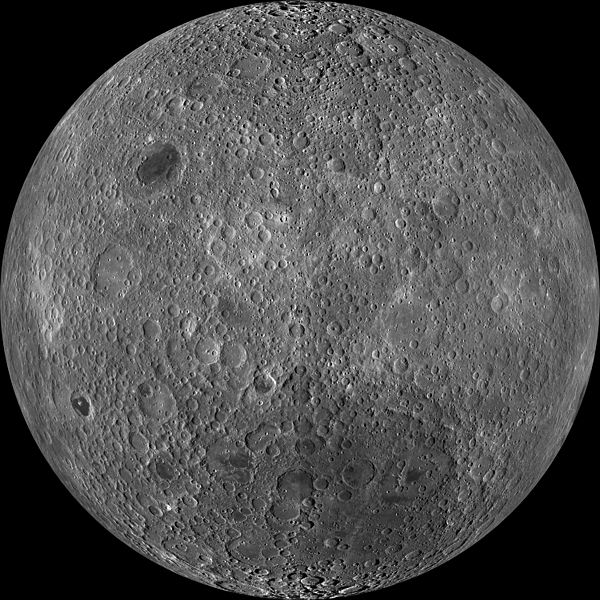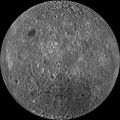Datoteka:Moon Farside LRO.jpg
Izgled

Veličina ovog prikaza: 600 × 600 piksela. Ostale razlučivosti: 240 × 240 piksela | 480 × 480 piksela | 768 × 768 piksela | 1.024 × 1.024 piksela | 2.048 × 2.048 piksela | 18.000 × 18.000 piksela.
Vidi sliku u punoj veličini (18.000 × 18.000 piksela, veličina datoteke: 85,34 MB, MIME tip: image/jpeg)
Povijest datoteke
Kliknite na datum/vrijeme kako biste vidjeli datoteku kakva je tada bila.
| Datum/Vrijeme | Minijatura | Dimenzije | Suradnik | Komentar | |
|---|---|---|---|---|---|
| sadašnja | 00:47, 20. ožujka 2014. |  | 18.000 × 18.000 (85,34 MB) | Huntster | High resolution mosaic. |
| 05:12, 9. travnja 2011. |  | 1.600 × 1.600 (1,44 MB) | Bubba73 | {{Information |Description ={{en|1=Far side of the Moon, by NASA's Lunar Recon. Orbiter}} |Source =http://apod.nasa.gov/apod/image/1104/farside_lro1600.jpg |Author =NASA - LRO |Date =2011? |Permission = |other_versions = } |
Poveznice
Nijedna stranica ne rabi ovu datoteku.
Globalna uporaba datoteke
Sljedeći wikiji rabe ovu datoteku:
- Uporaba na af.wikipedia.org
- Uporaba na az.wikipedia.org
- Uporaba na be.wikipedia.org
- Uporaba na bjn.wikipedia.org
- Uporaba na bn.wikipedia.org
- Uporaba na bs.wikipedia.org
- Uporaba na ca.wikipedia.org
- Uporaba na cs.wikipedia.org
- Uporaba na de.wikipedia.org
- Uporaba na en.wikipedia.org
- Uporaba na en.wikibooks.org
- Uporaba na en.wikiversity.org
- Solar System, technical/Moon
- User:Marshallsumter/Radiation astronomy2/Visuals
- Draft:Original research/Planets
- User:Marshallsumter/Radiation astronomy2/Visuals/Quiz
- User:Marshallsumter/Rocks/Rocky objects/Astronomy
- User:Marshallsumter/Radiation astronomy/Courses/Principles/Hourly 2
- User:Marshallsumter/Radiation astronomy/Courses/Principles/Midterm quiz
- User:Marshallsumter/Radiation astronomy/Courses/Principles/Final quiz
- Titan/Quiz
- User:Marshallsumter/Rocks/Rocky objects
- Draft:Enceladus/Quiz
- Moon/Quiz
- Stars/Sun/Heliology/Quiz
- Earth/Quiz
- Stars/Reds/Quiz
- Draft:Dione/Quiz
- User:Marshallsumter/Radiation astronomy2/Scattered disks/Quiz
- User:Marshallsumter/Radiation astronomy1/Kuiper belts/Quiz
- Liquids/Liquid objects/Moon
- User:Marshallsumter/Radiation astronomy/Craters
- Uporaba na es.wikipedia.org
Pogledajte globalnu uporabu ove datoteke.


